City farms have grown exponentially over the past 50 years, both London and across the UK.
There are 12 farms in the capital and more than 40 across the country – in big cities such as Birmingham and Bristol, and in smaller towns such as Cwmbran in South Wales.
Running a farm in an urban environment is incredibly difficult – it requires a lot of hard work and labour, and the farms tend to be underfunded as a result of budget cuts and changing priorities.
However, the original idea behind urban farming is very simple: they provide open-access, green spaces to those who have limited access to them.
They also give people an opportunity to connect with nature through better understanding where their food comes from and farming in general.
Liz McAllister, 45 who is the farm manager at Freightliners City Farm in Islington, said: “The farm is largely for people to use as their back garden.
“Having somewhere where you can come for free, or pop into for five minutes, is the foundation of what we’re here for.”
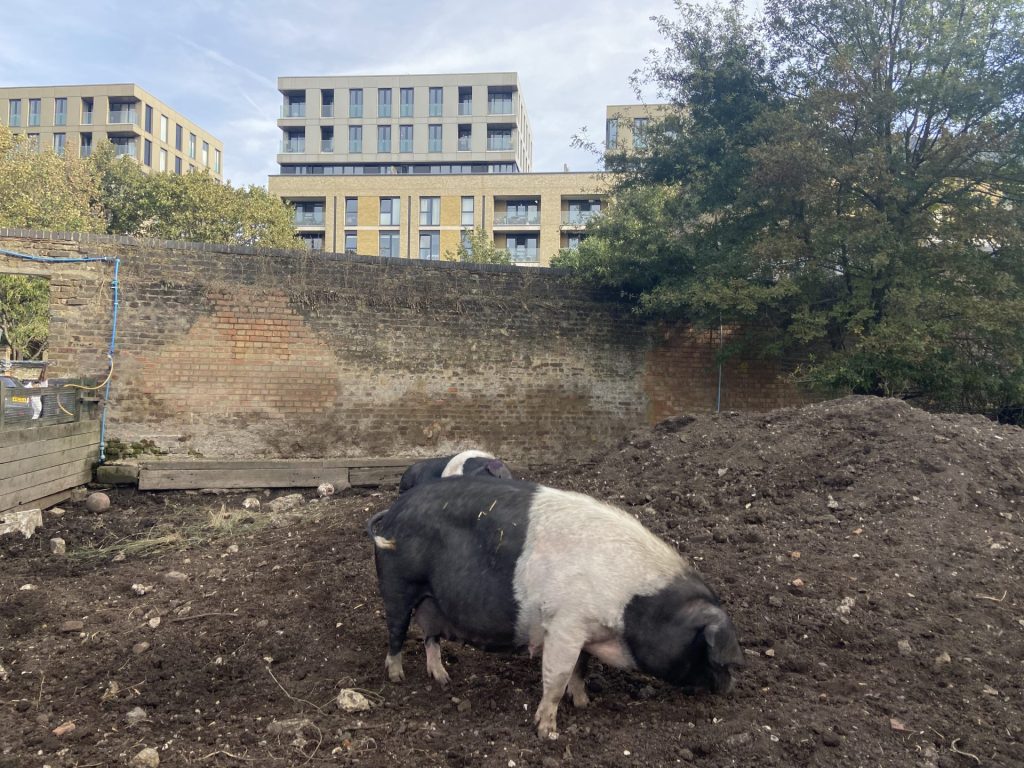
After speaking to people who have lived in London all their lives, it became clear that a lot of them didn’t realise such places were hidden amongst the concrete of Camden or Hackney.
While these farms are still unknown to many, and there will always be people yet to discover them, the collective hosts 500,000 people a year and they are beloved within their communities.
However, what these farms can offer their communities is the best kept secret.
Rachel Schwartz, 54, the company secretary of London City Farms and Community Gardens Association, said: “On a day to day basis, the city farms serve a really vulnerable population of young people, adults who have special needs or who have come from trauma.
“It’s these people who the farms work with week in, week out – that’s the secret.”
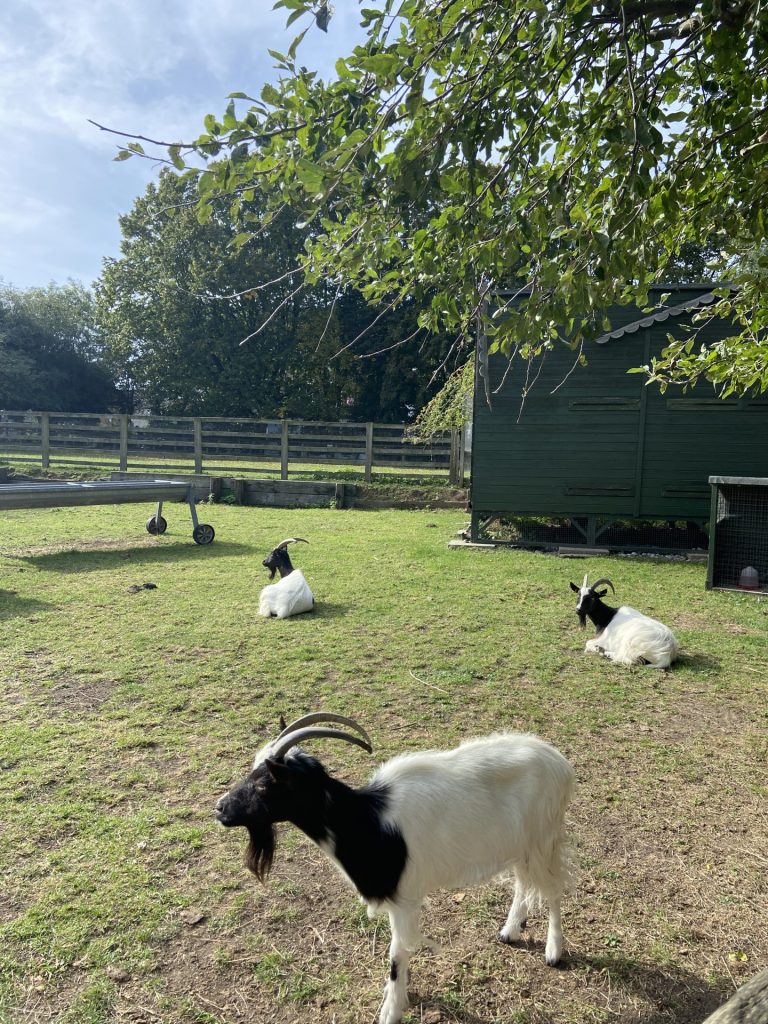
Schwartz explained how the farms offer people stability, as well as the opportunity to learn skills such as teamwork, following directions and improving communications.
Volunteer programmes are open to everyone – some people have been volunteering for ten years, others for six months.
Some are as young as 11, while others are in their 80s.
She said: “When our volunteers see people who are enjoying the farm and the gardens, they know it’s because of their hard work.
“They have the opportunity to give back to their community.”
Education is also at the heart of city farms, and it’s not only for children.
Liz told a story of a college student who visited the farm and didn’t realise how big cows were, having only ever seen them in books.
In their eyes, they were the size of big dogs.
She also explained how a lot of people are disconnected from the primary industry, be it growing produce or building infrastructure, and they often don’t appreciate the work that goes into it.
A person on a corporate team day revealed to McAllister that they had assumed fences just appeared, and not that they can sometimes take months to erect.
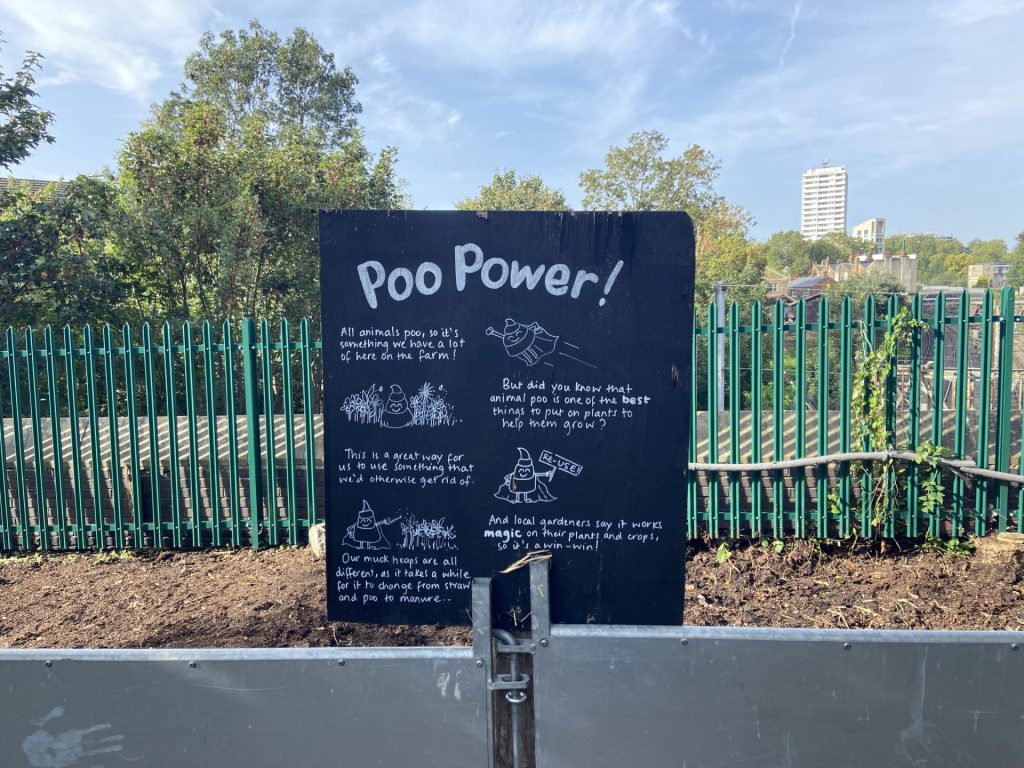
Aside from being a good opportunity to learn, volunteering on the farm, or simply just popping in, can also be very therapeutic.
Louise Matlock, 72, has been volunteering at Freightliners since 2011.
She said: “It’s a lovely space in the middle of a very busy city.
“We get many people who come in, even just at lunchtime, to calm and connect and that’s lovely.”
Liz also spoke of one of their volunteers who was having a very difficult time, and found going to the farm was the only chance they had at feeling happy.
Geo Slabu, 30, spends Monday to Friday sitting behind a computer.
She began volunteering at Freightliners in November 2022.
Geo said: “I used to come down to the farm in my own time just to distress and then I needed something to feel like I was being useful and helping.
“Sometimes when I come on a Saturday, I’m tired but I always say I get to go to the farm, it’s not that I have to.”
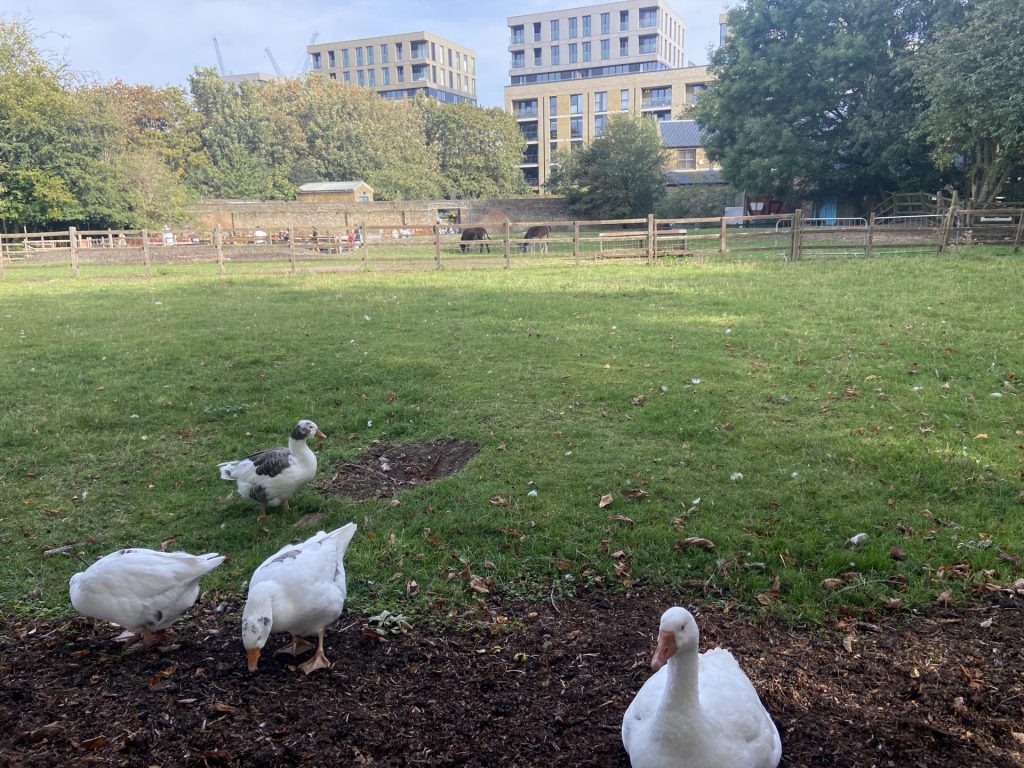
Geo’s approach to going to the farm is an opinion which was echoed by all the people I spoke to, and the role the farms has played in improving people’s well-being is significant – from cuddling the animals to having a laugh with fellow volunteers and staff.
The wealth of opportunity which urban farms can offer the most vulnerable people in their communities cannot be underestimated.
The benefits which can be reaped from volunteering every week or simply going to see some pigs on a Saturday, are huge.
That’s why city farms are London’s best kept secret.
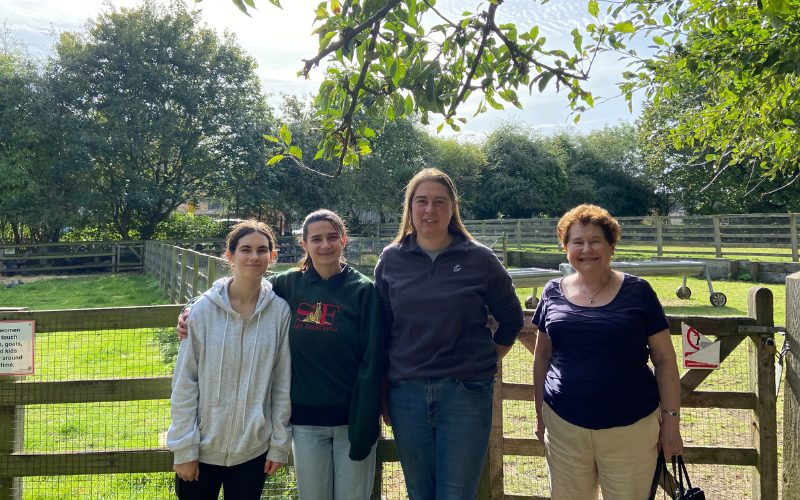




Join the discussion